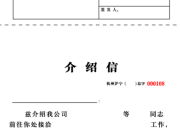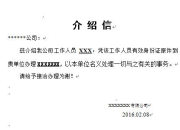英语作文 音乐教育
时间:2021-08-31Music education comprises the application of education methods in teaching music. Music education encompasses many areas of teaching, including music history, music theory, instrumental proficiency, singing skills, and general music skills.
The incorporation of music training from preschool to postsecondary education is common in North America and Europe, because involvement in music is thought to teach basic skills such as concentration, counting, listening, self-discipline and cooperation while also promoting understanding of language, improving the ability to recall information, fostering creativity, and creating an environment more conducive to learning in other areas.
There are many additional benefits training young children, as well as older children and teenagers, in music. Brain activity is increased which, in turn, strengthens spatial-temporal reasoning and skills in abstract reasoning (skills used in math and science). The brain learns to organize better and perform several tasks at the same time, by practicing the many facets involved in playing a musical instrument.
The many personal benefits achieved are confidence, self-esteem, and a sense of accomplishment. It shapes and molds the character with self-assurance and stability; and has the added bonus of public performance, which helps to conquer the fear getting up in front of people. Furthermore, learning a musical instrument fosters good habits like focus, mental discipline, staying with a task until it is complete, and allows for the expression feelings.
大致的意译如下:
音乐教育包括教育教学方法的音乐应用程序。音乐教育包括许多领域的教学,包括音乐史,音乐理论,器乐水平,演唱技巧,和一般的音乐技能。
在北美和欧洲音乐的教育从幼儿园到高中后是常见的`,因为在音乐的参与过程中可以教育人们专注,计算(思考),接受,自律,合作等基本技能,同时也促进人们对语言的理解,改善培训接受、记忆信息的能力,促进创造力和创造更加有利的环境,在其他方面的学习。
经过音乐训练的儿童有许多额外的收获,当然也包括年龄较大的儿童和青少年。大脑的活动增加,反过来也加强了时空推理和抽象推理能力(在数学和科学使用方面的技能)。通过对各种音乐的学习,大脑的学习能力得到重组、加强,甚至会同时进行多个活动。
从自身来讲,取得的最大好处是自信,自尊和成就感。它塑造了自我性格和稳定的心态,经常在人们面前公开表演则有助于克服恐惧,也是另外一个意外的收获。此外,学习乐器等会培养良好的习惯,自控能力加强,直到任务完成,才会分心于其他事物。
【英语作文 音乐教育】相关文章:











